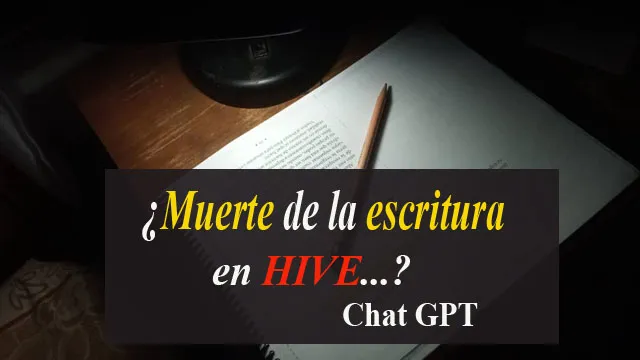
El poder de los algoritmos, la inteligencia artificial, y su posibilidad de superar las habilidades humanas se pusieron de manifiesto el diez de febrero de mil novecientos noventa y seis. Ese día sucedió algo inédito en la historia de la humanidad, por primera vez una máquina, el Deep Blue de IBM, lograba derrotar al campeón mundial de ese momento, Garry Kasparov, uno de los jugadores de ajedrez más grandes de la historia.
A partir de ese momento se tuvo que aceptar la superioridad de las máquinas en el llamado deporte ciencia, se establecieron nuevos controles para evitar que los jugadores recibieran asistencia electrónica mientras jugaban. Se aceptó que por lo menos en esa área estábamos por debajo; las máquinas nos estaban desplazando…
Veintiséis años después, a finales de dos mil veintidós, otro acontecimiento ligado a lo que convencionalmente llamamos inteligencia artificial ha puesto en el tapete la discusión sobre la superioridad de las máquinas para realizar actividades que se consideraban exclusivamente humanas. La tecnología llamada Chat GPT es capaz de sostener conversaciones con humanos, expresándose de forma escrita con un nivel de lenguaje que resulta realmente asombroso.
Los invito a que se den un paseo por internet para que puedan apreciar la calidad de los textos producidos por Chat GPT, son textos impecables, bien redactados, coherentes. Mucho mejores que los producidos por la mayoría de las personas.
La ventaja de la inteligencia artificial en este campo es notoria. Como se nutre de los millones de páginas que circulan por la web puede producir en tiempo record textos que hasta ahora hacían los humanos. Ya muchas empresas producen sus anuncios con esas tecnologías, los periódicos las utilizan para redactar notas de prensa. Y hasta el mundo de la política ha visto las ventajas de usar textos producidos rápidamente, eficientes y de alto impacto.
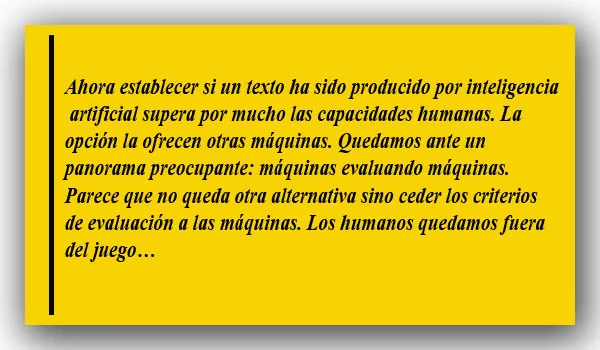
Recientemente el presidente de Israel, Isaac Herzog declaró que había utilizado la inteligencia artificial para la introducción y el cierre de uno de sus discursos. El diputado argentino Rodrigo de Loredo, estremeció a los asistentes de una sesión con un encendido discurso. Al final todos quedaron atónitos cuando el diputado declaró que la pieza de oratoria había sido escrita en su totalidad por la inteligencia artificial.
En el ámbito educativo se han encendido las alarmas, ya muchos docentes plantean la necesidad de establecer nuevas estrategias de evaluación, las tradicionales tareas propuestas para la casa probablemente formen parte del pasado. No tiene mucho sentido mandar a investigar temas cuya respuesta puede ser producida por la inteligencia artificial en cuestiones de segundos. Los docentes están pensando que el mayor peso de la evaluación recaiga en las actividades que los alumnos hagan dentro del aula.
Para un sitio de creación de blogs como HIVE, en el que se recompensan los contenidos originales, la irrupción de una tecnología como esta representa un gran reto.
HIVE se rige por un principio llamado prueba de cerebro, esto es, que el autor pueda mostrar que en realidad ha utilizado su ingenio para producir la publicación. Por eso se castigan las publicaciones en las que se demuestra la existencia de plagio.
Demostrar el plagio era relativamente sencillo, los algoritmos de las páginas antiplagios escaneaban la web buscando contenidos similares. Al final presentaban un informe de las páginas que probablemente habían sido plagiadas. Los curadores revisaban esas páginas, las comparaban con la publicación y se daban cuenta si en realidad se había incurrido en plagio. Al autor se le indicaba de dónde había copiado sus contenidos. Este sistema era justo y apropiado, una inteligencia humana era la que tomaba la decisión de decidir si se había incurrido en falta.

Pero ahora el asunto no es tan fácil. Demostrar que un texto no ha sido producido por alguien puede ser una tarea titánica, tan difícil como la que tuvieron los primeros teólogos desde la edad media.
Durante cientos de años los teólogos se enfrentaron a un gran reto: cómo seleccionar los textos que formarían el canon de las Sagradas Escrituras. A sus manos llegaban muchos textos escritos en los idiomas de la época. El problema era determinar cuáles de ellos habían sido producidos por la Inspiración Divina, en cuáles estaba presente la palabra de Dios. Un trabajo que no era nada fácil.
Utilizando procedimientos hermenéuticos llegaron a sus conclusiones, hicieron el canon, se estableció el cuerpo de las Santas Escrituras y decidieron cerrar el asunto. No se aceptaban más textos de inspiración Divina. Así que si usted o yo nos presentamos con un texto diciendo que fue una revelación de Dios, pues sencillamente no se le da crédito, no se acepta. Ese capítulo se cerró.
Ahora establecer si un texto ha sido producido por inteligencia artificial supera por mucho las capacidades humanas. La opción la ofrecen otras máquinas. Quedamos ante un panorama preocupante: máquinas evaluando máquinas. Parece que no queda otra alternativa sino ceder los criterios de evaluación a las máquinas. Los humanos quedamos fuera del juego…
Es verdad que en este momento están disponibles diferentes programas de inteligencia artificial que dicen ser capaces de distinguir entre un texto creado por un humano del creado por una máquina. Uno de los más populares es ZeroGpt.
El problema aquí es que no hay demostración como la que se hacía con los antiplagios, no confrontamos el texto contra nada. Solo tenemos la conclusión que nos da la máquina, un informe que dice que el texto es creado por un humano o no. Confiamos ciegamente en la máquina ¿Podemos confiar en una conclusión que puede ser errónea…?
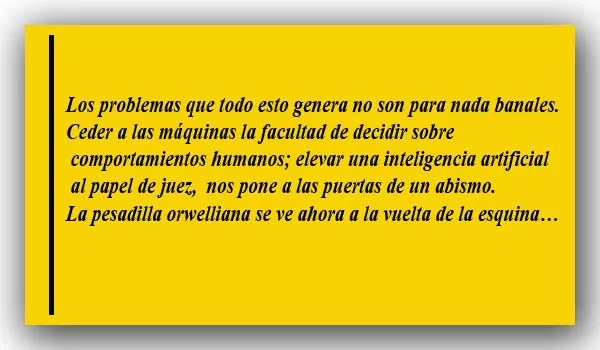
Estos resultados solo deberían tomarse como una probabilidad porque ninguno de estos programas es infalible, ninguno está exento de errores.
La dificultad de demostrar si un texto es producido por un humano o por inteligencia artificial sitúa a los creadores de contenido ante un gran problema: la inversión de la carga de la prueba, esto es, usted debe demostrar que realmente produjo el texto.
¿Y cómo puedo yo demostrar que en realidad escribí este texto…? Es algo realmente difícil. Claro que hay varias alternativas pero son costosas y requieren grandes inversiones de tiempo. Pudiera defender el texto ante un jurado, lo que por lo menos me pondría en la posición de saber que domino el contenido. También pudiera someterme a la prueba del polígrafo para demostrar que no estoy mintiendo. Y también podría contratar a unos expertos en análisis de discurso para que contrastaran el texto con otros escritos de mi autoría. Pero el costo que todo esto tendría lo invalida como algo de uso cotidiano.
Los problemas que todo esto genera no son para nada banales. Ceder a las máquinas la facultad de decidir sobre comportamientos humanos; elevar una inteligencia artificial al papel de juez, nos pone a las puertas de un abismo. La pesadilla orwelliana se ve ahora a la vuelta de la esquina…
Pienso en la gran dificultad que ahora tienen los creadores de obras de ficción y los poetas para no ser acusados de usar inteligencia artificial. En el caso de la poesía el problema pudiera ser menos serio, bastaría con dejar de escribir en versos libres y volver a los modos clásicos de los versos rimados. La inteligencia artificial, hasta ahora, no es capaz de interpretar un concepto como la rima.
El resto de los escritores puede protegerse un poco incorporando las anécdotas personales en sus escritos y, pareciera mentira, pero también escribiendo un poco mal, porque la inteligencia artificial crea textos muy pulcros, apegados a la sintaxis más ortodoxa y usando un lenguaje accesible y directo.
La verdad es que todo esto me genera una gran incertidumbre, soy de los que disfrutan escribiendo un texto, llenando de caracteres la página en blanco. Ojalá no llegue el día en que el temor a no poder demostrar mi autoría me obligue a cambiar a un espacio como el de los videos, donde hasta ahora es más fácil demostrar que se es el que se dice ser.
Gracias por tu tiempo.


The power of artificial intelligence and its possibility of surpassing human abilities became evident on February 10, 1996. That day something unprecedented in the history of mankind happened, for the first time a machine, IBM's Deep Blue, managed to defeat the world champion at that time, Garry Kasparov, one of the greatest chess players in history.
From that moment on, the superiority of machines in the so-called science sport had to be accepted, and new controls were established to prevent players from receiving electronic assistance while playing. It was accepted that at least in that area we were below; the machines were displacing us...
Twenty-six years later, at the end of two thousand twenty-two, another development linked to what we conventionally call artificial intelligence has brought to the forefront the discussion about the superiority of machines to perform activities that were considered exclusively human. The technology called GPT Chat is capable of holding conversations with humans, expressing itself in written form with a level of language that is truly astonishing.
I invite you to take a walk on the Internet to appreciate the quality of the texts produced by Chat GPT, they are impeccable, well written, coherent texts. Much better than those produced by most people.
The advantage of artificial intelligence in this field is notorious. Since it is fed by the millions of pages that circulate on the web, it can produce in record time texts that until now were produced by humans. Many companies already produce their advertisements with these technologies, newspapers use them to write press releases. And even the world of politics has seen the advantages of using texts produced quickly, efficiently and with high impact.
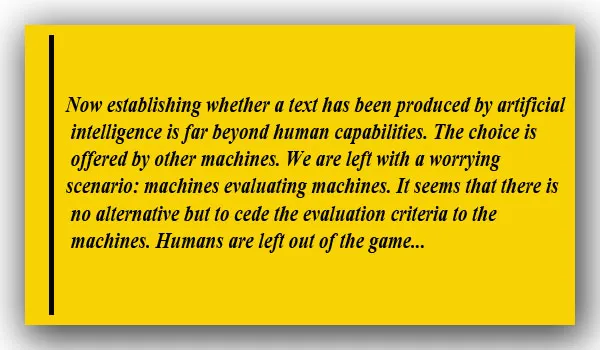
Recently, Israel's President Isaac Herzog declared that he had used artificial intelligence for the introduction and closing of one of his speeches. Rodrigo de Loredo, an Argentinian congressman, rocked the audience of a session with a fiery speech. At the end everyone was stunned when the deputy declared that the oratory piece had been written entirely by artificial intelligence.
In the educational field, alarm bells have gone off; many teachers are already raising the need to establish new assessment strategies, and traditional homework assignments are probably a thing of the past. It does not make much sense to send students to research topics whose answers can be produced by artificial intelligence in a matter of seconds. Teachers are thinking that most of the weight of the assessment will fall on the activities that students do in the classroom.
For a blogging site like HIVE, where original content is rewarded, the emergence of such a technology represents a major challenge.
HIVE is governed by a principle called brain proofing, that is, that the author can show that he or she has actually used his or her ingenuity to produce the post. This is why publications where plagiarism is proven are punished.
Proving plagiarism was relatively simple, the algorithms of the anti-plagiarism sites scanned the web for similar content. At the end they would present a report of the pages that were likely to have been plagiarized. The curators would review those pages, compare them with the publication and find out if plagiarism had actually occurred. The author was told where he had copied his content from. This system was fair and appropriate, a human intelligence was the one who made the decision to decide whether a fault had been committed.
But now the matter is not so easy. Proving that a text has not been produced by someone else can be a titanic task, as difficult as it was for the first theologians since the Middle Ages.

For hundreds of years theologians faced a great challenge: how to select the texts that would form the canon of the Holy Scriptures. Into their hands came many texts written in the languages of the time. The problem was to determine which of them had been produced by Divine Inspiration, in which the word of God was present. It was not an easy task.
Using hermeneutical procedures they reached their conclusions, made the canon, established the body of the Holy Scriptures and decided to close the matter. No more divinely inspired texts were accepted. So if you or I come forward with a text saying that it was a revelation from God, it is simply not credited, it is not accepted. That chapter is closed.
Now establishing whether a text has been produced by artificial intelligence is far beyond human capabilities. The option is offered by other machines. We are left with a worrying panorama: machines evaluating machines.
It seems that there is no alternative but to cede the evaluation criteria to the machines. Humans are out of the game...
It is true that at the moment different artificial intelligence programs are available that claim to be able to distinguish between a text created by a human and a text created by a machine. One of the most popular is ZeroGpt.
The problem here is that there is no demonstration as was done with anti-plagiarism, we do not confront the text against anything. We only have the conclusion that the machine gives us, a report that says that the text is either created by a human or not. We blindly trust the machine. Can we trust a conclusion that may be wrong...?
These results should only be taken as a probability because none of these programs is infallible, none is error-free.
The difficulty of proving whether a text is produced by a human or by artificial intelligence puts content creators in front of a big problem: the reversal of the burden of proof, that is, you must prove that you actually produced the text.
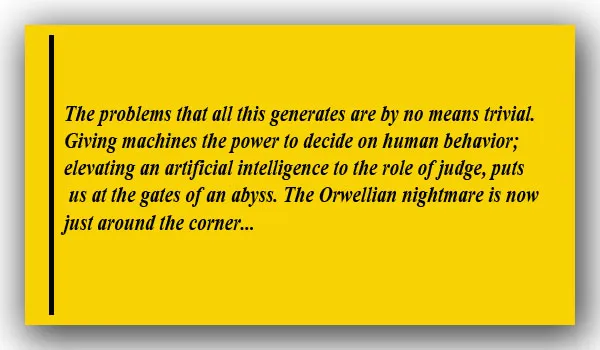
And how can I prove that I actually wrote this text...? It is really difficult. Of course, there are several alternatives, but they are costly and time-consuming. I could defend the text before a jury, which would at least put me in the position of knowing that I have mastered the content. I could also take a polygraph test to prove that I am not lying. And I could also hire experts in discourse analysis to contrast the text with other writings of my authorship. But the cost of all this would invalidate it as a matter of everyday use.
The problems that all this generates are by no means trivial. Giving machines the power to decide on human behavior; elevating an artificial intelligence to the role of judge, puts us at the gates of an abyss. The Orwellian nightmare is now just around the corner...
I think of the great difficulty that creators of fiction and poets now have in order not to be accused of using artificial intelligence. In the case of poetry the problem could be less serious, it would be enough to stop writing in free verse and return to the classical modes of rhymed verse. Artificial intelligence, so far, is not capable of interpreting a concept such as rhyme.
The rest of the writers can protect themselves a little by incorporating personal anecdotes in their writings and, it would seem untrue, but also by writing a little badly, because artificial intelligence creates texts very neat, sticking to the most orthodox syntax and using an accessible and direct language.
The truth is that all this generates a great uncertainty in me, I am one of those who enjoy writing a text, filling the blank page with characters. I hope the day doesn't come when the fear of not being able to prove my authorship forces me to switch to a space like the videos, where so far it is easier to prove that you are who you say you are.
Thanks for your time.
Translated with www.DeepL.com/Translator (free version)




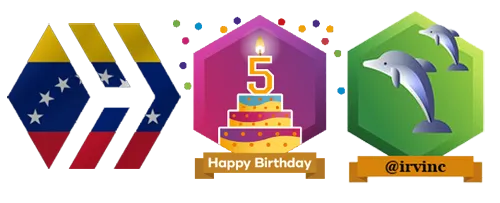

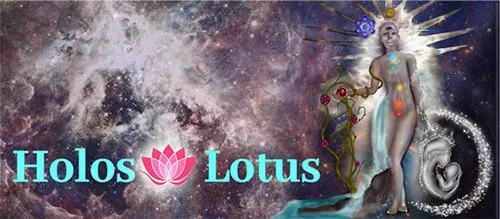

Comunidad Be Entrepreneur
